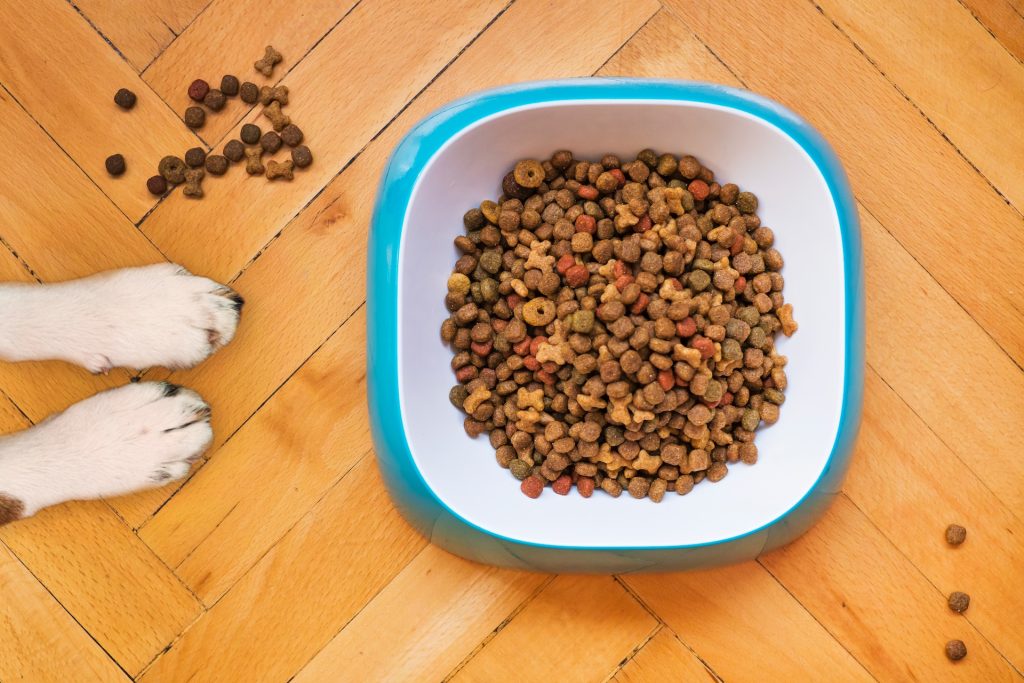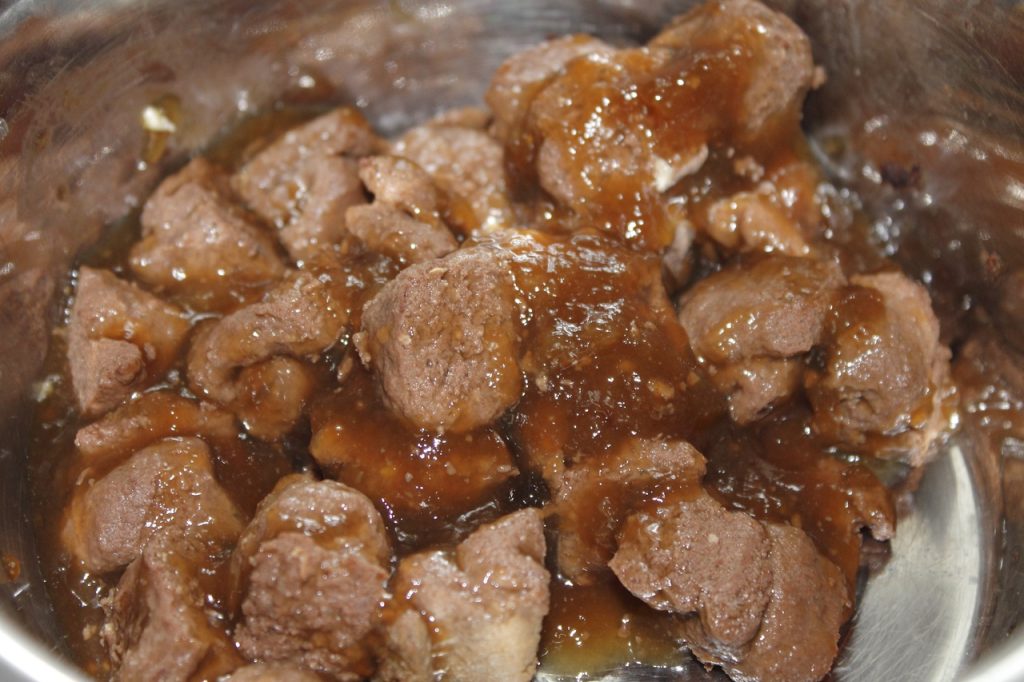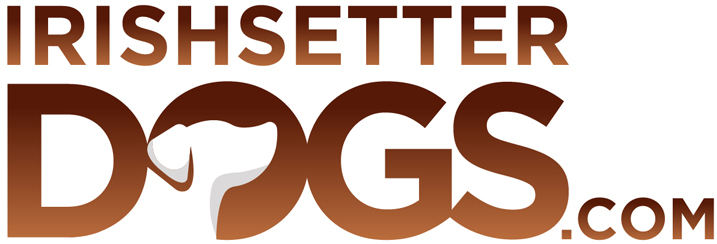As a dog owner, I understand the importance of providing the best care for our furry friends. When it comes to Irish settlers, their energetic nature and specific dietary needs require careful attention. In this comprehensive guide, I will walk you through the ins and outs of Irish Setter diet requirements, ensuring your beloved pet stays healthy and happy.
From the ideal food choices to portion sizes and feeding schedules, I will cover all the essential aspects of mealtime for your Irish Setter. Following these guidelines can create a meaningful and nutritious dining experience that supports their overall well-being.
What Causes Poor Nutrition In Irish Setters?

Poor nutrition in Irish settlers can harm their health and overall well-being. Understanding the factors contributing to inadequate nutrition is crucial for responsible dog ownership. In this guide, we will explore the causes of poor nutrition in Irish settlers so you can make informed choices and ensure your beloved pet receives the nourishment they need.
1: Inadequate Food Quality
One of the primary causes of poor nutrition in Irish settlers is feeding them low-quality or inappropriate food. When dogs are not provided with a balanced diet that meets their specific nutritional requirements, they can suffer from malnutrition. Low-quality dog food may lack essential nutrients, leading to deficiencies that can affect your Irish Setter’s health. Choose reputable dog food brands that provide adequate protein, fats, carbohydrates, and essential vitamins and minerals.
2: Overfeeding or Underfeeding
Inconsistent feeding practices, such as overfeeding or underfeeding, can result in poor nutrition for Irish settlers. Overfeeding can lead to obesity and associated health problems, while underfeeding can cause malnutrition and weight loss. It’s important to establish a regular feeding schedule and monitor portion sizes to ensure your dog receives the right amount of food based on their age, activity level, and overall health.
3: Lack of Variety in Diet
Feeding Irish Settlers the same type of food without variety can lead to poor nutrition. Dogs benefit from a diverse diet that includes various protein sources, vegetables, and grains. Feeding them the same daily food may result in nutrient imbalances or deficiencies. To avoid this, consider rotating their diet with high-quality dog food and consult your veterinarian for guidance.
4: Ignoring Dietary Allergies or Sensitivities
Some Irish Settlers may have food allergies or sensitivities, which, if ignored, can lead to poor nutrition. Allergic reactions to certain ingredients can cause digestive problems, skin issues, and discomfort. Identifying and eliminating allergens from their diet is essential to maintain proper nutrition. If you suspect your dog has food allergies, consult a veterinarian to conduct appropriate tests and recommend suitable dietary changes.
5: Poor Food Handling and Storage
Improper food handling and storage can also result in poor nutrition. Storing dog food in humid or hot conditions can lead to spoilage and nutrient degradation. Always store dog food in a cool, dry place, and ensure it’s sealed to maintain freshness and nutritional value. Additionally, avoid leaving food out for extended periods as it can attract pests and spoil, potentially harming your dog’s health.
6: Lack of Regular Veterinary Check-Ups
Neglecting regular veterinary check-ups for your Irish Setter can lead to poor nutrition, as underlying health issues may go undetected. Health problems can affect your dog’s ability to absorb and utilize nutrients from their food. Routine check-ups can identify health concerns that might require dietary adjustments or specific nutritional supplements to maintain well-being.
By being attentive to these potential causes and providing your Irish Setter with a balanced and appropriate diet, you can ensure their nutritional needs are met, promoting a healthier and happier life for your beloved pet.
Possible Health Problems Associating Poor Diet In Irish Setter

A poor diet in Irish Setters can lead to various health problems affecting their quality of life and longevity. Responsible dog owners must recognize the potential health issues associated with inadequate nutrition. Here, we will explore the possible health problems that may arise from a poor diet in Irish Setters, helping you understand the importance of properly nourishing your furry friend.
❕Obesity
Obesity is a common health problem in Irish settlers with poor diets. Excessive calorie intake and a lack of proper nutrition can lead to weight gain. Obesity strains joints, increases the risk of heart disease, and can contribute to diabetes. Maintaining a balanced diet with appropriate portion control prevents obesity and its associated health concerns.
❕Nutrient Deficiencies
A poor diet can result in nutrient deficiencies, causing various health issues in Irish settlers. For instance, inadequate intake of essential vitamins and minerals can lead to weakened immune systems, poor coat condition, and even developmental problems in puppies. Regularly feeding high-quality dog food and consulting with a veterinarian can help prevent these issues by meeting all nutritional needs.
❕Gastrointestinal Problems
Inadequate nutrition can cause gastrointestinal problems, including chronic diarrhea, vomiting, and irritable bowel syndrome in Irish settlers. Poor diet choices or food intolerances can result in these issues, leading to discomfort and decreased overall health. By providing a diet appropriate for your dog’s specific needs and addressing any food sensitivities, you can help maintain their digestive health.
❕Dental Issues
A poor diet can contribute to dental problems in Irish settlers. Feeding them sugary or high-carbohydrate foods can lead to dental decay and gum disease. Proper nutrition and incorporating dental care routines, such as brushing and providing dental treats or toys, can help prevent these oral health issues.
❕Skin and Coat Problems
Inadequate nutrition can manifest in skin and coat problems for Irish settlers. A diet lacking essential fatty acids and vitamins can result in dry, itchy skin, excessive shedding, and a dull coat. High-quality dog food with the right balance of nutrients can promote healthy skin and a shiny coat, reducing the risk of skin issues.
❕Allergies and Sensitivities
Poor diet choices can exacerbate or even cause allergies and sensitivities in Irish settlers. Common allergens include certain proteins or grains found in low-quality dog foods. Identifying and eliminating allergens from their diet can help manage allergic reactions and sensitivities, ensuring your dog’s well-being.
❕Weakened Immune System
A lack of proper nutrition can weaken the immune system of Irish settlers, making them more susceptible to infections and illnesses. Ensuring your dog receives a balanced and nutrient-rich diet supports their immune health and overall resilience.
Providing your dog with a well-balanced and appropriate diet can significantly reduce the risk of these health concerns and promote a happier and healthier life for your beloved Irish Setter. Regular veterinary check-ups and consultations are essential to address specific dietary needs and maintain your dog’s well-being.
Irish Setter Diet Requirements

A well-balanced diet is essential for the health and vitality of your Irish Setter. These energetic and active dogs require specific dietary considerations to meet their nutritional needs.
Like any other breed, Irish settlers need a diet with essential nutrients, including proteins, fats, carbohydrates, vitamins, and minerals. High-quality commercial dog food is often a convenient option as it’s designed to meet these nutritional requirements.
However, you can also choose to prepare homemade meals, but consult with a veterinarian to ensure you meet all your dietary needs. Monitoring portion sizes to prevent overfeeding is crucial, as Irish settlers can be prone to obesity. Below are the diet requirements essential for Irish Setters:
✔️Protein Requirements
Proteins are a fundamental component of an Irish Setter’s diet, as they help build and repair muscles. A diet for an Irish Setter should consist of around 20-30% protein content. Ensure the protein source is high-quality, such as lean meats like chicken, turkey, or beef. Avoid excessive fat content in the protein source, as it may contribute to weight gain.
✔️Fat Content
Fat is an essential energy source for Irish settlers. Their diet should contain approximately 10-15% fat. Healthy fats, like those found in fish or plant-based oils, can help maintain their skin and coat. It’s vital to regulate fat intake to prevent excessive weight gain, which is especially important for this breed.
✔️Carbohydrates
Carbohydrates provide the necessary energy for Irish settlers to support their active lifestyle. A balanced diet should include 30-40% carbohydrates. Opt for complex carbohydrates like whole grains, vegetables, and fruits. These sources provide sustained energy and fiber for digestive health. Minimize the use of simple sugars and highly processed carbohydrates.
✔️Fiber and Digestive Health
Fiber is essential for maintaining healthy digestion in Irish settlers. Ensure their diet contains around 2-4% fiber, mainly from vegetables and grains. Adequate fiber promotes regular bowel movements and can help prevent gastrointestinal issues.
✔️Vitamins and Minerals
Irish Setters require various vitamins and minerals for overall health. Essential vitamins include A, D, and E, while minerals like calcium and phosphorus are crucial for bone health. Consult a veterinarian to determine if your dog’s diet requires supplementation, as excessive amounts of certain vitamins and minerals can be harmful.
✔️Water Intake
Proper hydration is crucial for Irish settlers, especially because they are highly active. Always provide access to clean, fresh water. Monitor their water intake, especially during warm weather or after vigorous exercise, to prevent dehydration.
✔️Special Dietary Considerations
Irish Setters can be prone to certain health issues, such as bloat (gastric torsion) and food allergies. It’s important to be mindful of these potential issues and consider feeding smaller, more frequent meals to reduce the risk of bloat. If your dog exhibits signs of food allergies, work with your veterinarian to identify and eliminate the problem ingredients from their diet.
Always consult with a veterinarian to ensure you’re meeting your Irish Setter’s individual dietary needs and to address any specific health concerns they may have.
Essential Supplements for Irish Setters
Supplements can play a crucial role in supporting the health and well-being of your Irish Setter. While a well-balanced diet is the foundation of their nutrition, there are specific supplements that can address certain needs or health concerns.
🌿Multivitamins
Multivitamins are essential supplements that can help ensure your Irish Setter receives all the necessary vitamins for overall health. These supplements can be particularly beneficial for dogs on homemade diets, as they can address potential vitamin deficiencies. Consult with your veterinarian to select a multivitamin that meets your dog’s specific needs, as overloading on certain vitamins can be harmful.
🌿Omega-3 Fatty Acids
Omega-3 fatty acids, such as those found in fish oil supplements, are vital for maintaining healthy skin and a glossy coat in Irish Setters. These supplements can also have anti-inflammatory effects, which can help manage conditions like arthritis and allergies. Omega-3 supplements can promote joint health and reduce skin irritations, contributing to your dog’s overall comfort and well-being.
🌿Glucosamine and Chondroitin
Glucosamine and chondroitin supplements support joint health, particularly in older Irish Setters or those prone to hip dysplasia and arthritis. These supplements can help reduce joint inflammation, enhance mobility, and alleviate pain. Your veterinarian can recommend the appropriate dosage and formulation to suit your dog’s needs.
🌿Probiotics
Probiotic supplements can aid in maintaining a healthy digestive system for Irish settlers. These “good” bacteria promote the balance of gut flora, which dietary changes, illness, or stress can disrupt. Probiotics can help alleviate digestive issues like diarrhea and constipation and support overall gastrointestinal health.
🌿Coenzyme Q10
Coenzyme Q10 (CoQ10) is an antioxidant that supports heart health in Irish settlers. CoQ10 supplements may help improve cardiovascular function and reduce the risk of heart-related issues as they can be prone to heart conditions. Discuss with your veterinarian whether CoQ10 supplementation suits your dog, as the dosage can vary based on age and overall health.
🌿Green-Lipped Mussel Extract
Green-lipped mussel extract is a natural supplement rich in omega-3 fatty acids and antioxidants. It can be particularly useful in managing joint problems, such as arthritis, in Irish Setters. The anti-inflammatory properties of this supplement can enhance joint mobility and reduce pain. Consult your veterinarian to determine the appropriate dosage for your dog’s needs.
When used under a veterinarian’s guidance, these essential supplements can play a significant role in maintaining the health and happiness of your Irish Setter. Each dog is unique, and their dietary and health needs may vary. Therefore, it’s crucial to consult with a professional to determine which supplements are most suitable and in what dosage for your dog.
Foods to Avoid When Feeding Irish Setters

Feeding your Irish Setter is important to their care, and understanding what foods to avoid is crucial. Certain foods can be harmful or toxic to Irish settlers, potentially causing severe health issues. This guide will explore the foods you should avoid when feeding your Irish Setter to help you keep your furry friend safe and healthy.
1: Chocolate
Chocolate is a common household item that should never be fed to Irish settlers. Dark chocolate and unsweetened baking chocolate are the most dangerous. It’s essential to store chocolate out of their reach.
2: Grapes and Raisins
Grapes and raisins cause kidney failure in dogs, including Irish Setters. The exact reason for this toxicity is not fully understood, but even small amounts can be harmful. Symptoms may include vomiting, diarrhea, lethargy, and loss of appetite. Avoid these fruits and any foods containing them.
3: Onions and Garlic
Whether raw, cooked, or powdered, onions and garlic contain compounds that can damage a dog’s red blood cells. This condition, known as hemolytic anemia, can lead to weakness, lethargy, and breathing difficulties. Long-term exposure to these ingredients can be harmful, so it’s best to avoid feeding them to your Irish Setter.
4: Foods High in Fat
Foods high in fat, such as fatty meats and fried dishes, can lead to pancreatitis in Irish settlers. Pancreatitis is a painful inflammation of the pancreas, causing symptoms like vomiting, diarrhea, and abdominal pain. To prevent this condition, stick to lean meats and avoid sharing greasy or fried foods with your dog.
5: Alcohol and Caffeine
Alcohol and caffeine are substances that can have severe effects on Irish settlers. Even small amounts of alcohol can lead to alcohol poisoning, resulting in vomiting, diarrhea, coordination problems, and, in severe cases, coma. Similarly, caffeine in coffee, tea, and energy drinks can be toxic and should be kept away from your dog.
6: Xylitol
Xylitol is a sugar substitute often found in sugar-free gum, candies, and peanut butter brands. It can cause a rapid release of insulin, leading to a sudden drop in blood sugar levels and potentially causing seizures or even liver failure. Always check ingredient labels, and ensure your dog does not consume xylitol products.
Keeping these items out of their reach and being mindful of ingredient labels can help ensure your Irish Setter stays safe and healthy. Always consult with your veterinarian if you suspect your dog has ingested any toxic food.
How Much Should an Irish Setter Eat?
Feeding your Irish Setter the right amount of food is essential for maintaining their health and ideal weight. The amount they should eat depends on several factors: size, age, activity level, and metabolism. As a general guideline, a medium-sized Irish Setter weighing 40 to 50 pounds may require 2 to 3 cups of food daily, while a large Irish Setter weighing 55 to 70 pounds may need 3 to 4 cups.
Monitoring your dog’s weight and body condition is important to ensure they are neither underweight nor overweight. If your Irish Setter starts gaining weight, you may need to adjust their portions to prevent obesity and associated health problems. On the other hand, increasing their food intake may be necessary if they are losing weight or appear too thin.
These are general guidelines, and individual dogs may have different needs. It’s always best to consult a veterinarian who can assess your Irish Setter’s specific requirements and provide personalized feeding recommendations.
Create a Healthy Meal Plan for Your Irish Setter Today

A well-balanced and nutritious meal plan is essential when keeping your Irish Setter healthy and happy. Providing your dog with the right combination of high-quality dog food and natural ingredients ensures they get the nutrients they need to thrive. Here are some tips to help you create a healthy meal plan for your Irish Setter:
→Choose a high-quality dog food:
Start by selecting a dog food specifically formulated for Irish settlers or active breeds. Look for a brand that uses high-quality protein sources, such as chicken or lamb, as the main ingredient. Avoid foods that contain fillers or artificial additives.
→Incorporate natural ingredients:
Supplement your Irish Setter’s diet with natural ingredients that provide additional nutrients and variety. Lean meats like turkey or beef can be cooked and added to their meals, along with vegetables like carrots or green beans. These natural ingredients can help provide essential vitamins and minerals.
→Consider dietary restrictions or sensitivities:
If your Irish Setter has any dietary restrictions or sensitivities, it’s important to consider these when creating their meal plan. For example, if your dog has a grain sensitivity, choose grain-free dog food options and avoid adding grains to their meals.
→Consult a veterinarian:
Every dog is unique, and their dietary needs may vary. It’s always a good idea to consult a veterinarian to ensure you meet your Irish Setter’s specific nutritional requirements. They can provide personalized recommendations and help you create the best meal plan for your dog.
By following these tips and creating a healthy meal plan for your Irish Setter, you can provide them with the nutrition they need to support their energy levels, muscle development, and overall health. Remember to monitor your dog’s weight and adjust their food amounts to maintain a healthy weight. Your Irish Setter can live a happy and healthy life with a balanced diet and regular exercise.
Frequently Asked Questions
Are there specific foods my Irish Setter should avoid?
Yes, avoid feeding your Irish Setter chocolate, grapes, raisins, onions, and foods high in fat. These can be harmful to their health.
Can I give table scraps to my Irish Setter?
It’s not advisable. Table scraps can upset their digestion and lead to weight gain. Stick to a proper dog diet.
Do Irish Settlers need special dietary considerations as they age?
Yes, as they age, they may require senior dog food with lower calories and supplements for joint health. Consult your vet for guidance.
How can I tell if my Irish Setter has food allergies?
Watch for signs like itching, digestive upset, or skin issues. If you suspect food allergies, consult your vet for testing and guidance.
Should I feed my Irish Setter before or after exercise?
Feeding after exercise is generally better to prevent stomach issues during physical activity. Wait at least an hour after a meal before exercise.
How often should I provide water to my Irish Setter?
Always ensure fresh water is available. Irish Setters are active dogs, so check their water dish regularly, especially in hot weather, to prevent dehydration.
Final Words
In my experience, understanding the dietary needs of an Irish Setter is not just a matter of feeding them; it’s a way of showing love and care. Researching and following the right diet requirements for Irish Setters has not only kept my beloved pet healthy and active but has also deepened our bond. It’s heartwarming to see them thrive, their coat shining, and their energy boundless, all because I took the time to learn about their specific dietary needs. Feeding them well is a way of saying, “Thank you for being my loyal companion.” It’s a journey that has not only benefited my Irish Setter but has enriched my life as well. So, to all fellow dog lovers out there, I encourage you to explore and implement these dietary guidelines because the love and gratitude you’ll receive in return are immeasurable.

